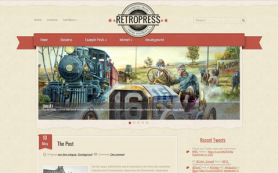Is WordPress Suitable For Student Projects?
With innovation in education, teachers find themselves looking for the newest and most interesting project ideas. Some even wish to help their students keep pace with technology and hence, integrate tech-enabled projects.
WordPress is a platform that is diverse and widely used. So, it makes sense if you are thinking of assigning WP projects to your students. Since its potential in the education world is unexplored, your worries about whether or not it is a suitable platform for students’ projects are justified.
So, if you are weighing your options, here are five reasons why you should use WordPress for student projects. Your students can even do homework online after building an assignment portal on WP and finding reliable academic helpers.
It Is Free and Open-Source
Academic projects must not be expensive. Since WordPress is free to download, install, and use, students can explore the software to make desired projects. In the beginning, they do not even need to pay for hosting. They can instead start building their websites using a free WordPress hosting platform or host them locally on computers.
Once they are certain of the website’s design, they can purchase a domain and hosting service and make it live. The cost of domain and hosting is quite affordable in most cases.
Easy to Learn and Can Be Used Without Coding
You can easily work on this software if you are slightly familiar with computers. The software is easy to learn and use, which makes it an apt tool for students. All you need to do is log in and start exploring various options available on the dashboard.
WordPress is absolutely a beginner-friendly platform. You can build your website using already available templates, plugins, and add-ons, without any coding. The vastness of the software may feel overwhelming at first, but with a little help from online resources (guides and YouTube tutorials), you can easily find your way around.
Adaptable and Flexible
WordPress is primarily a content management system (CMS) which makes people believe that it is only good for blogging. However, it has evolved so much that you can now build various types of websites on it. In fact, it is one of the most adaptable and flexible software making it suitable for students as well.
The adaptability enables you to assign varying projects to your students, including a blog, forum, portfolio, online newspaper, and assignment board for the class. You can also ask a group of students to make an online shop for used books that other students can use.
Supports Multiple Media
Another amazing aspect of WordPress is that it supports multiple media. That means your students can add files, images, graphics, and even videos to their websites, making them as versatile and useful as possible. Additionally, the platform also allows various media formats, such as .png, .jpeg, .pdf, .gif, .wmv, and .mp4, to be uploaded to the website.
Offers the Opportunity to Learn Many Things
Website development is a whole process that makes a student learn many other skills throughout. In the beginning, they explore and understand the platform. Then they need to prepare a rough design of the website, which is called a wireframe. Once the website’s outline is prepared, they need to search for templates, design elements, and graphics to add.
Building a website also requires them to learn about images and their sizes, user interface and user experience, visual analysis, site architecture, and search engine optimization. Browsing and selecting suitable plugins is also a task, especially when you are on a budget.
They might also learn to code if some of your students are naturally curious or wish to customize their projects.
6 Project Ideas You Can Use for Assignments
News Portal
Running your own news portal is probably the most effective way to encourage student engagement in co-curricular activities. Form a group of students and ask them to build an online news portal. Form another group and ask them to make news categories and assemble information to publish. Another group of students can curate and edit information to make the portal run smoothly.
Student Forum
An online forum allows students to connect outside the classroom, share information and resources, and help each other with study-related questions. Such a forum can easily be developed on WordPress. Each student can then log in to the platform and become a user.
Knowledge Repository
From study materials to relevant research papers, a knowledge repository can be a go-to place for students to find study-related information. Assign a group of students with the task of making an online repository. It can be an open platform where all the students can submit material, which will be reviewed by the teachers and approved before it is made available for use.
Mini Social Network
A closed social network for students can be a great hang-out place after school. This mini-social network can be made available for the rest of the school once it starts functioning properly. Although it is comparatively a tough task to create a website like this, students involved in this project will have a lot of fun and learn at the same time.
Assignment Board
An online assignment library would ease things for both the teacher and students. You can ask a group of students to build an online website where all the assignments will be uploaded under subject-wise categories. Students can then upload their submissions and get feedback and remarks, making it a seamless process.
Blog
Creating a blog is perhaps the most obvious assignment when it comes to WordPress. However, it is not easy. Students will have to go through a lot of research to procure the best blog design and theme. They will have to run their blogs until the end of the term, which will then be assessed based on different criteria, such as consistency, upvotes, resharing, and quality of content.
Wrapping Up
If you like to think outside the box and find unique ideas intriguing, you will like the idea of using WordPress for student projects. This innovative way to combine academic projects with website building will give your students exposure to next-level learning while keeping them engaged with current lessons. All you need is little patience and strategic implementation from your end.
 Members Area
Members Area




